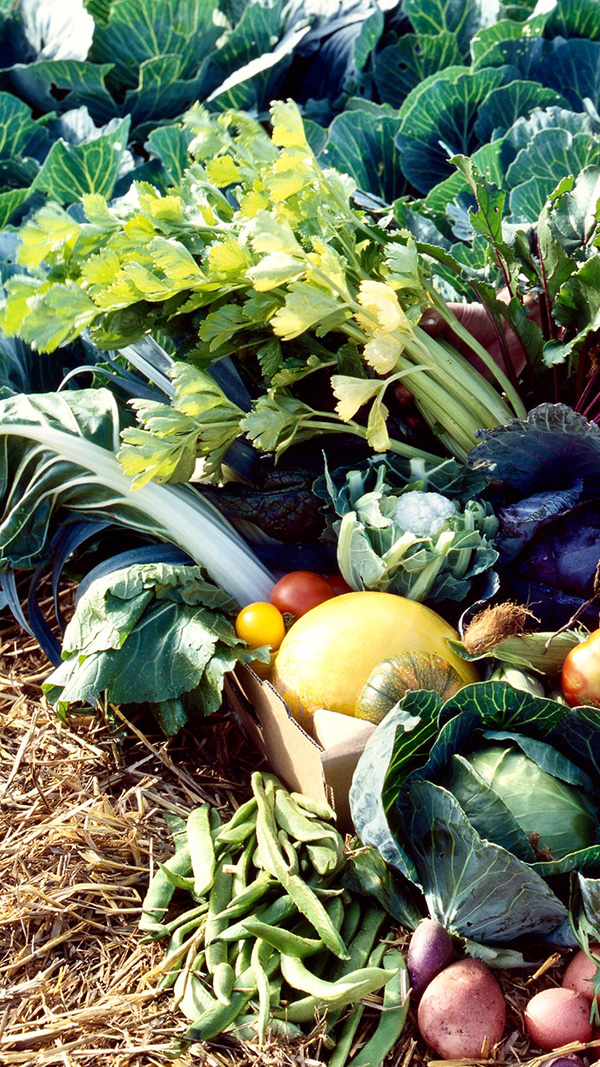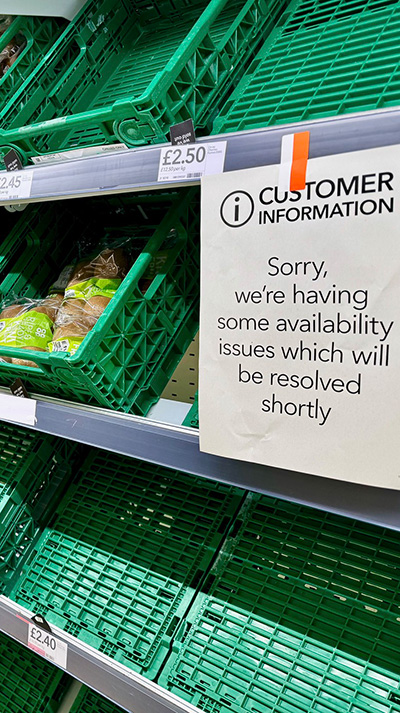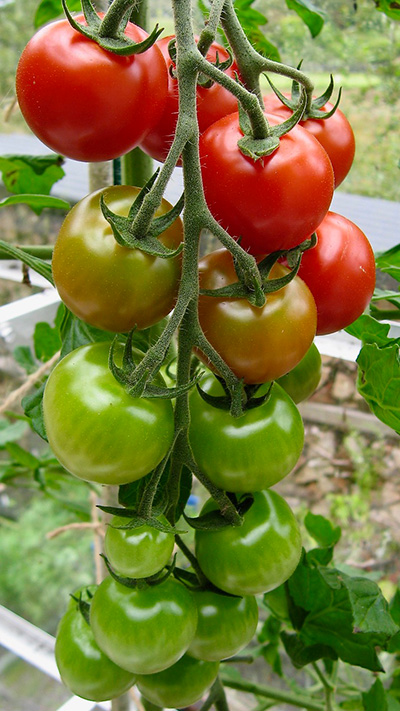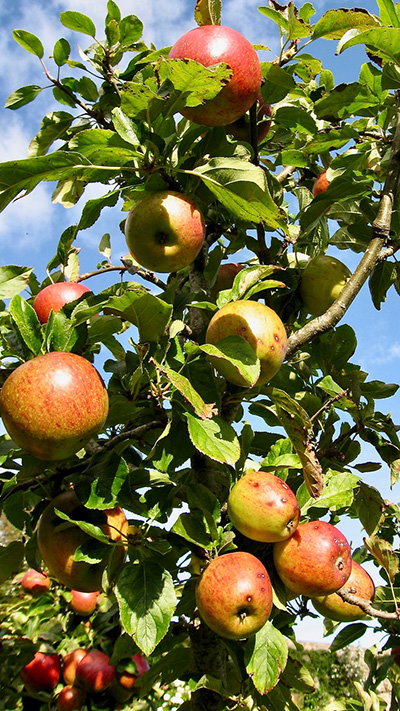As food prices rise and supply chains fray and snap, a radical new approach to work and income could free up time for many more of us to grow our own.
I’m ready to scream. If I hear this phrase one more time, I will: ‘cost of living crisis’. There, I’ve typed it and I’m still calm(ish). This phrase is now part of our national vocabulary; it’s uttered endlessly on the news, and is threaded throughout written media. We entered this ‘crisis’ on the heels of the Covid pandemic and then Russia’s invasion of Ukraine. Prices went up, including the price of food, which is still rising, but for other increasingly intertwined reasons.

It’s time we woke up and admitted to ourselves that we’ve moved from crisis to permacrisis; many costs are not ever going to come down, including the price of food. We live in an ecologically destabilising world riven with uncertainty and unpredictability – a far different one from that in which we started out as food-growing gardeners.
But if there’s one group of folk less prone to screaming than most, it’s gardeners quietly growing some – if not a large amount – of their own fresh produce, in their gardens, allotments, greenhouses or polytunnels, or in local community spaces. Despite our increasingly fickle weather, and a summer sandwiched, in many areas, between four heatwaves, gardeners are still bringing in a harvest that’s largely immune from the factors which are edging up shop prices.
When we grow food at home, footsteps from where it will be prepared and eaten, we cast off concerns about failing food supply chains, economic meltdowns, crop shortages and failures overseas, and shockwaves emanating from wars and political unrest abroad, all of which are increasingly driven by the effects of climate breakdown.

The food we grow ourselves, organically, in tandem with nature, using local, ecologically renewable inputs, is – bar some modest start-up costs (seeds, for example) – effectively free. And unlike the produce we do buy – fresh or otherwise – the size doesn’t go down as the price goes up (‘shrinkflation’ is another must-scream). The tomatoes I’m picking now will be much the same size as those I’ll pick a year from now – barring half a dozen, even hotter crop-zapping heatwaves next summer – and will still be free at the point of munching.
Gardeners are blessed when it comes to growing food. We can devote attention and care to a relatively small area of land, and with knowledge and experience, enjoy bountiful harvests. Unlike farmers and growers, we don’t have to care for crops on a vast field-size scale, with all the challenges that brings, such as drought, which is now seriously affecting vegetable crops in some areas of the UK, and having a knock-on effect on both quality and yield (on the flip side, many fruits have excelled, ripening early). Faltering and failing crops overseas, hit by increasingly chaotic weather, will only add to our checkout woes; July’s inflation increase was partly due to rising food prices.

As climate change bites ever harder, and supply chains fray and snap, food shortages – and the punitive price rises that accompany them – are inevitable. Couple that with our just-in-time food distribution system, where much of the food sold in shops is actually ‘stored’ in trucks on our road network, and the merest hiccup along tenuous supply lines means empty supermarket shelves. Our food-producing plots, greenhouses and polytunnels will sag in a heatwave, but the modest, strong, reliable supply line from soil to kitchen is unlikely to break.
But our blessedness isn’t solely down to our gardening guile. There’s another magic ingredient that makes meaningful gardening happen, especially when we grow food: time. It isn’t something everyone has in copious amounts, but time is something many more of us with horticultural urges are going to need if we’re to unlock gardening’s limitless potential as a buffer against a disrupted, uncertain future when shelves are sometimes bare.

We need to grow ourselves more time. To do that we need to sow a revolutionary seed into society: Universal Basic Income, or UBI. The idea of giving everyone UBI isn’t new, but wherever it has been piloted around the world, the results have been positive. UBI is a set amount of monthly income (Welsh trials have offered participants around £1,600) which isn’t means-tested; everyone receives it. Its fundamental purpose is to give everyone, especially those struggling financially, more breathing space to, essentially, follow their dreams. UBI isn’t about stopping work (although that might be an option), but about giving us more choice over where we focus our energies and passions.
By helping us to make basic ends meet and cover life’s essentials, UBI would allow us to step off the sapping work treadmill, draw breath, become less anxious and more innovative and creative. It would also mean more time for gardening, for growing, harvesting, preparing and storing food, either solo at home, or as part of a collaborative venture of buffer-building, skill-swapping and harvest-sharing fellow growers building resilience together. Flower-growing aficionados would also have more time to fill our lives with joy.

More time would allow us to plan for and adapt to turbulent periods when supply lines are down, trucks arrive half-empty, and the shops just can’t feed us all with certainty any more. More food grown where most of us live would help temper panic and reassure our neighbours that there will be enough affordable food to eat. More time will allow us to reimagine how we garden, at both an individual and a community level. It will allow us to plan ahead, learn and skill up, and share seeds, plants and produce. Gardening, underwritten by time-freeing UBI (perhaps Universal Gardening Income – UGI – hits a more powerful note), would help us to plan and to collaborate with local growers and farmers, as we face a shared tempestuous future.
Our dinner plates wouldn’t be the only beneficiaries of UBI. Our living world would reap its own harvests as nature-friendly, ecologically sustainable growing techniques worked hard to produce fresh, nutritious, healthy food that’s as ultra-local as it gets. Wildlife, itself wrong-footed by a fast-changing world, would find refuge among millions of productive plots. Myriad growing spaces – with weather-beating greenhouses at their core – would help to relieve anxiety, bolstering physical and mental health in a new, unfamiliar world of upheaval. Millions of us, through gardening, could help to face down and temper the permacrises ahead.
Universal Basic (or Gardening) Income isn’t a reality yet, but it’s hard to imagine a more equalising and potent way of sowing the seeds of both individual and collective resilience into society; free up the time, and we will grow!
When we finally get our act together to prepare for the bumpy road ahead, and UGI germinates, I’ll happily scream – with joy.
Text and images © John Walker
Join John on X @earthFgardener


